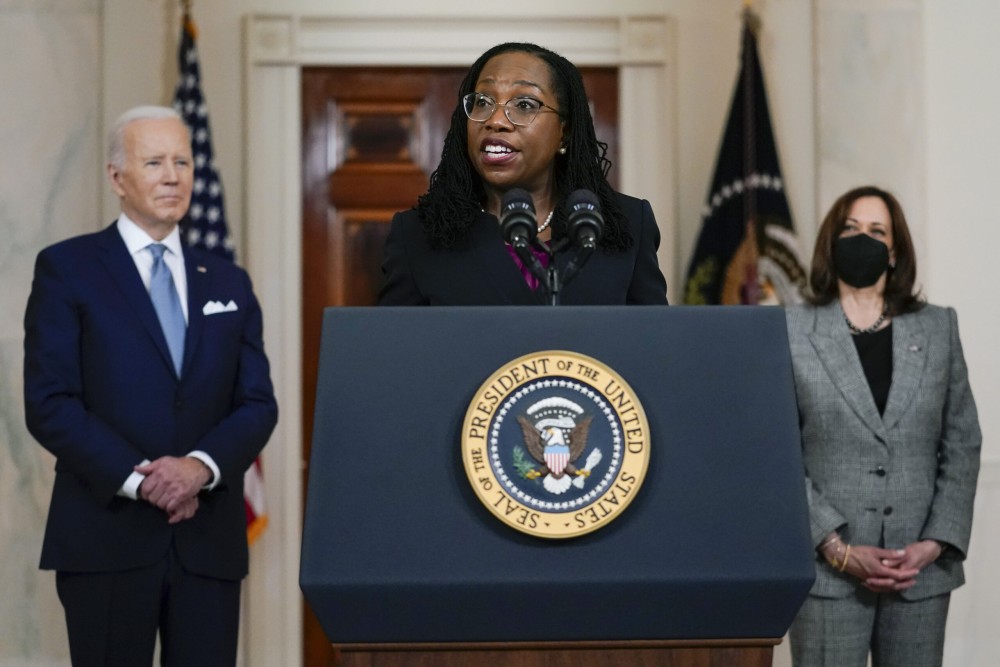Supreme Court nominee Ketanji Brown Jackson speaks about faith

Immediately after President Joe Biden introduced Judge Ketanji Brown Jackson as his nominee to the US Supreme Court on February 25, the federal appeals court judge stepped up to the podium and appealed to the divine.
“I must begin these very brief remarks by thanking God for delivering me to this point in my professional journey,” she said. “My life has been blessed beyond measure, and I do know that one can only come this far by faith.”
Jackson’s words marked the beginning of what promises to be a historic confirmation process: if confirmed by the US Senate, Jackson, 51, who currently serves on the DC Court of Appeals, would be the first Black woman to serve on the Supreme Court.




